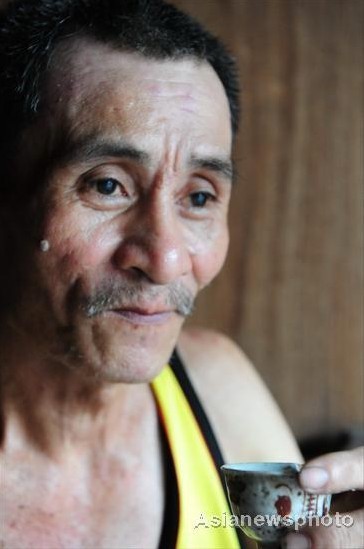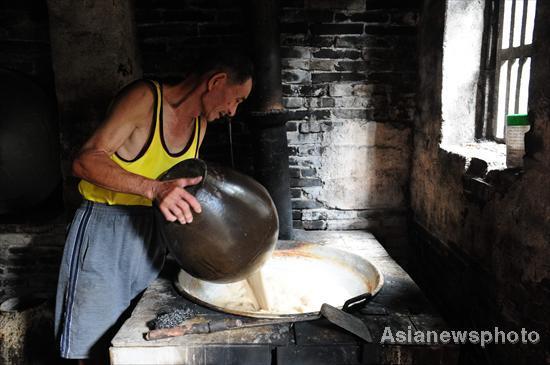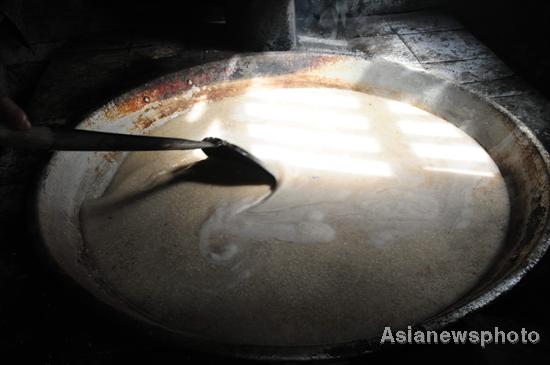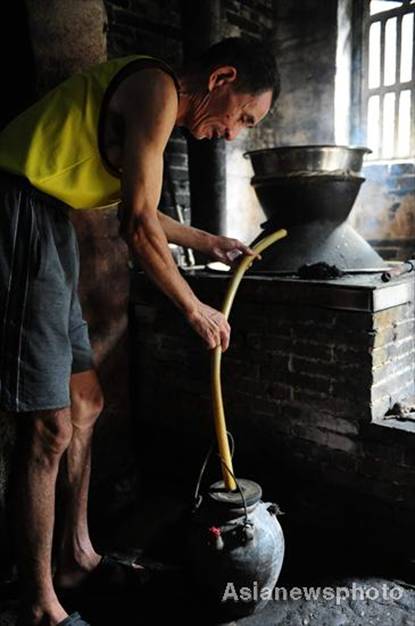 |
|
Wang Lijiao enjoys his own rice wine. |
 |
|
Wang Lijiao pours steeped rice into a cauldron. |
 |
|
Wang Lijiao mixes the steeped rice. |
 |
|
Wang Lijiao pipes the distilled liquor (the rice wine) into a jar. |
Wang Lijiao, a 61-year old wine maker, lives in a three hundred-year-old mansion at the center of Xiansai village near Qionghai city, Hainan province. Stepping into this old mansion, one can smell the mellow scent of Wang's home-made ricewine.
Wang has been carrying on his ancestral techniques of rice wine-making for 30 years since the reform and opening-up of the country. He keeps from drinking his produce, but can make superb rice wine by estimating the concentration of the distilled liquorwith his eyes.
In his backyard, he has many earthenware jars for soaking the rice which is then boiled after ten days' soaking. The distilled liquor is then collected through a pipe into another jarwhere the water finally becomes rice wine.
Wang's traditional rice wine is popular in the neighborhood, but he sells only five kilograms for 20 yuan every day. With the large scale of wine production and technological progress in the country, he may no longer find any successors for his traditional rice wine-making techniques.















